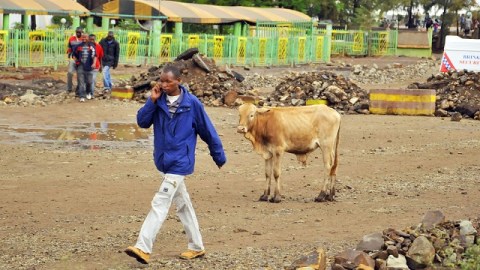What Happens When Cows Come To Nairobi

What’s the Latest Development?
As more Africans move to urban cities, some, such as those residing in the Nairobi district of Dagoretti, are bringing their cows and chickens along with them. The animals are kept in the backyards, and their manure is also used to fertilize vegetable gardens, which Nairobi public health workers say helped contribute to a spike in a particular type of infectious disease. Rather than recommend a ban on keeping animals in the city, the workers created a publicity campaign to encourage more careful attention to how well they’re kept. As researcher Delia Grace puts it, “[W]e know that [conventional warnings are] not very effective. [This is] a new approach that’s trying to change peoples’ behavior based on social norms.”
What’s the Big Idea?
Livestock serve as a reliable source of meat and milk in urban areas where there are few grocery stores or freezers: “[For children] the nutritional benefits of ready access to milk outweighs some of the cow-related drawbacks.” A cow can also be used as collateral for a bank loan. Upon further research, Grace and her colleagues decided that asking rural people to give up such an integral part of their culture wasn’t an option. The publicity campaign they developed involves brochures and cartoons that gently pressure residents into adopting safer and more hygienic standards.





